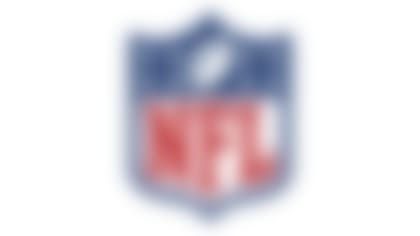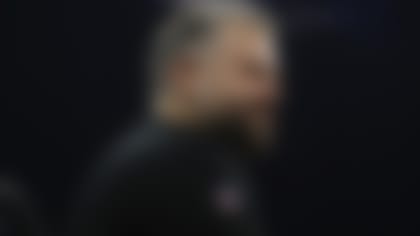In an effort to help educate NFL fans on the battle over the television blackout policy, Hall of Fame receiver Lynn Swann spoke to NFL Network's NFL AM on Saturday about the importance of keeping football games on free TV.
"It's strange when you talk about the No. 1 sport in America, the NFL, and why would you have to protect it," Swann said. "The reality is that there is about 80 million Americans only can watch TV on free, over-the-air network television. That's part of the process in terms of the blackout rule, maintaining it, which helps grow the game and help maintain it. So we've been talking about that, educating people about that."
As NFL Media's Jeff Darlington explained last month, while the blackout rules seems simple -- if a stadium doesn't sell out for a particular game, local audiences can't watch it on television -- it is complicated, full of legal nuance and carrying important implications.
"The FCC is sitting there looking at possibly changing some of those rules," Swann said. "And we've had about well over 7,000 people who have written letters in, talking about not wanting to change that rule. So we need to make sure to protect the game so the widest number of people possible can view it and keep it on free TV for those people who don't buy cable packages.
The NFL has teamed up with its broadcast partners and the National Association of Broadcasting to educate fans on their message through a website: ProtectFootballonFreeTV.com.
As a former receiver and broadcaster, Swann knows the importance of creating a balance between having a full stadium and still providing local games on free TV for those who can't get to the stadium.
"Well, I mean, that's why it's important to keep it on free TV," Swann said of fan's. "So when they're home, they have a chance to watch it. The whole thing is a very delicate balancing act where you want each game and each event to be a unique event. You know as a broadcaster the difference it makes when a stadium is full, and it's an event. The players respond to it. Everybody responds to it. It also drives all the networks to be more creative to make sure that their audience at home is getting something unique you can't get at the game, while at the same time, every team, is making sure that the stadium event people come to is also unique. So it ends up being a win-win for everyone and the reality is, you go back to the old saying 'If it's not broken, why are you trying to fix it.'"











